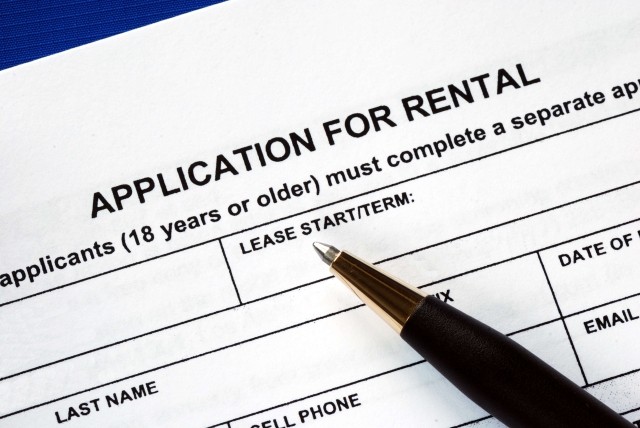You’ve officially advertised your rental property, and renters are responding to your listing. What next? How do you know which tenant to choose? The best way to choose a tenant is to elect a tenant screening process. It’s important to treat each tenant the same during this process by asking them the same questions so as not to violate the Fair Housing Act, which prohibits discrimination on seven protected classes and other classes determined by your state and local laws.
What Is a Tenant Screening?
As a landlord, you’ll be screening your prospective tenants to evaluate the likelihood that they will be able to abide by the lease terms, including paying rent on time and not damaging the property. A tenant screening starts with the potential tenant filling out a rental application and paying the application fee. This is followed by collecting each applicant’s personal information, including his or her employment records, criminal history, and rental history. Many landlords rely on tenant screening services to retrieve such information.
If you decide to list your property on Apartments.com, renters can submit their application directly from their listing. Once they submit the application, you can see the applicant’s eviction, criminal, and credit history, all with the screening tools on Apartments.com rental manager.
Questions to Ask During Tenant Screenings
You may also ask your tenants certain rental screening questions before approving their rental application, as long as they abide by the FHA guidelines. During this process, you may find that potential tenants have questions for you, too.
1. What is your preferred move-in date?
After potential tenants have shared interest in your rental, ask when they want to move in. If the renter doesn’t plan to move for another three months (or longer), you will risk having your unit sit vacant until their delayed move-in date.
2. Are you capable of paying move-in costs upon signing a lease?
Although you should already require proof of income during your tenant screening process, tell your potential tenant upfront what your requirements are to move in — such as the first month’s rent and a security deposit.
3. Do you have any pets, and what kind?
If you don’t allow pets in your unit, and this potential tenant has a pet, there’s no need to waste either of your time. If you do allow pets, be upfront with your restrictions, such as the type and number of pets allowed and what the penalties are for breaking the pet policy.
4. Will you be able to pass a background and credit check?
Tell each applicant that they are welcome to tour the unit, but to be approved, they must fill out an application, pay the required fees, and pass a background and credit check.
5. How long have you lived in your current home?
Ask your applicant about their past residence and how long they lived there. If they didn’t live there long, this could indicate a lack of stability, meaning they could move out on you in the middle of their lease.
6. Why are you leaving your current home?
If the applicant is looking for a new home because they have been evicted from their previous rental, this is a major cause for concern. Talk to their landlord to discuss the situation further.
7. Can you provide references from previous landlords?
If the applicant is moving from a previous apartment community or rental house, be sure to ask for references from previous landlords. This would help you better understand if the tenant paid rent on time and took care of their previous home.
8. How many people will be living with you?
If an applicant overcrowds your property, this can lead to unwanted wear and tear. Make sure the number aligns with your property's policies.
9. What is a rough estimate of your monthly income?
Even though you can see the applicant’s income when you run a background check, it’s always a good idea to check. The industry standard is that the monthly income should be three times the rent. This gives enough room for the tenant to afford rent along with any other expenses.
10. Are you willing to sign a one-year lease?
You will want your applicants to stay for a year; it’s a good idea to be upfront and ask if they are willing to sign a lease for a year. If not, you could consider creating a lease for a few months or tell the tenant that your property is not the right fit for them.
Questions to Avoid Asking Potential Tenants
It’s critical to follow the Fair Housing Act and not ask any questions regarding national origin, disabilities, children, gender, or religion. By asking such questions, you could find yourself in a discrimination lawsuit. It’s important to set standards for your tenants, but they must be reasonable and legitimate, such as having an income that’s three times the rent or having a good rental history. If you ask one tenant for proof of income, you must require this from any and every applicant. There cannot be any preferential treatment of any kind during your tenant screening process.
Rental Application and Tenant Screening Tips
Before your first tour, set up an online application and screening process that allows you to perform background and credit checks. The background check typically includes rental history, criminal records, and other public records you should know about. A credit check will tell you if the potential tenant has a history of late payments, any accounts that have gone to collection if they’ve filed for bankruptcy, or if they have too much debt for their income. Be sure that your application states that by signing, each applicant agrees to a background and credit check.
What to Look for in a Potential Tenant
Any renter with the following attributes will be a great fit for your rental:
- A steady work history
- Income that’s two to three times the rent (depending on your requirements)
- A good or decent credit score
- Good history with previous landlords or property managers
- A reputable reason for leaving the last residence (ideally no eviction history)
- Personal references (former employer or landlord are ideal)
Now that you’ve set up your screening process and have a list of questions to ask (and what not to ask), you’re on your way to finding the perfect tenant for your rental. Best of luck!











